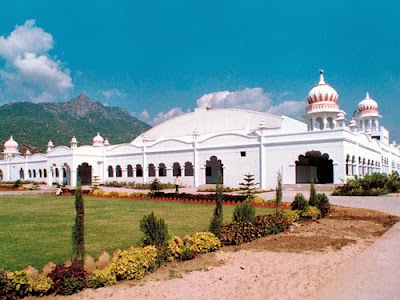Mount Abu has a total area of around 328 sq. km including the Abu hills, although the official figure is of 113 sq. km under unnotified sanctuary area. It was declared as a closed area since 1965. If you are a nature lover, you should head to Mount Abu Wildlife Sanctuary which is long and narrow at the base while its top spreads out into a beautiful plateau. This plateau is around 5 to 8 km in breadth and 19 km in length. According to hindu mythology, there are over 33 crore Gods and Goddesses and it is widely believed by devotees and pilgrims to be of utmost importance. It is a very sacred and revered place in hindu mythology due to its religious significance. Further the large number of temples burgeoning in its area make it a further important place to visit in the country. Legend says that the name Abu comes from the name Arbuada, who was a powerful serpent in the legends. It is believed that he rescued Nandi, the sacred bull belonging to Lord Shiva. Thus Abu refers to the son of Himalayas. It has been home to countless sages and saints. This includes the renowned Rishi Vashishtha who is believed to be the creator of the four Agnikula Rajput clans out of a fire pit. This was done for the sole purpose of performing a yajna or fire sacrifice in order to protect the earth from the demons.
Mount Abu: Only Hill-Station Amidst Deserts
Mount Abu has a total area of around 328 sq. km including the Abu hills, although the official figure is of 113 sq. km under unnotified sanctuary area. It was declared as a closed area since 1965. If you are a nature lover, you should head to Mount Abu Wildlife Sanctuary which is long and narrow at the base while its top spreads out into a beautiful plateau. This plateau is around 5 to 8 km in breadth and 19 km in length. According to hindu mythology, there are over 33 crore Gods and Goddesses and it is widely believed by devotees and pilgrims to be of utmost importance. It is a very sacred and revered place in hindu mythology due to its religious significance. Further the large number of temples burgeoning in its area make it a further important place to visit in the country. Legend says that the name Abu comes from the name Arbuada, who was a powerful serpent in the legends. It is believed that he rescued Nandi, the sacred bull belonging to Lord Shiva. Thus Abu refers to the son of Himalayas. It has been home to countless sages and saints. This includes the renowned Rishi Vashishtha who is believed to be the creator of the four Agnikula Rajput clans out of a fire pit. This was done for the sole purpose of performing a yajna or fire sacrifice in order to protect the earth from the demons.





